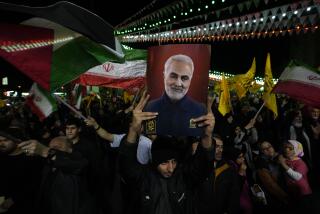The diplomatic track in Syria
Even before his on-again, off-again threat to punish the government of Syria for the use of chemical weapons, President Obama was criticized for what many saw as a halting and incoherent policy toward the civil war in that country. Advocates of muscular U.S. intervention noted that Obama had said it was time for President Bashar Assad to step aside, but he had declined to weaken Assad’s position either by establishing a no-fly zone or by providing opposition forces with significant military hardware. The result, they said, was to prolong the civil war, which has cost 100,000 lives to date.
Now critics are complaining that the administration is cementing Assad’s hold on power by agreeing to a Russian-proposed plan for the decommissioning of Syria’s chemical arsenal. By definition, they argue, a plan that requires the cooperation of the Assad government extends its lease on life and spares it from accountability for war crimes. And that, in turn, demoralizes the moderate Syrian opposition.
If only it were that simple. The humanitarian toll of the war has been horrific, but there is no guarantee that more forceful U.S. military intervention would have ousted Assad or led to his replacement by a stable and democratic government. Nor is it clear that providing heavy weaponry to “vetted” insurgents would have prevented the influx of Islamist fighters who want to replace Assad’s secular dictatorship with a religious state and who seem to be gaining influence.
Given these complexities, we supported Obama’s efforts to pursue a diplomatic solution that would stop the fighting, ease Assad out of power and, if the stars aligned, lead to the creation of a government that would respect the rights of ethnic and religious minorities. Obama adhered to that cautious approach even when he was considering a military response to the use of chemical weapons in Syria. He made it clear that a strike would be designed to hold Assad accountable and degrade his chemical weapons capability, not to drive him from office. The administration is now hopeful that those limited objectives will be achieved peacefully, through the disarmament program authorized by the United Nations Security Council last month.
Meanwhile, the U.S. and Russia have continued to work toward convening a peace conference that conceivably could include Iran, which is an ally of the Syrian government, and Persian Gulf states that have been supporting and supplying opposition groups. There is absolutely no assurance that such a meeting will materialize, let alone that it will produce a cease-fire followed by an orderly transition to an inclusive government. But many would have said the same thing a few months ago about the possibility that Assad would agree to dismantle his chemical weapons.
More to Read
Sign up for Essential California
The most important California stories and recommendations in your inbox every morning.
You may occasionally receive promotional content from the Los Angeles Times.








